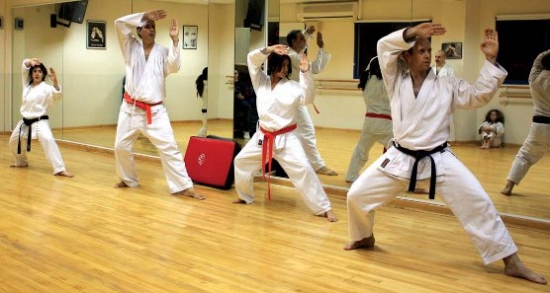
It’s never too late to learn karate. So, at any rate, claims Nigel Kersh, founder of a Dojo in Raanana. “A granny of 78 joined one of my classes in Britain,” he explains, “and got her Black Belt when she turned 87. If she can do it, so can anyone.” And on Monday and Thursday nights, in a wooden-floored, mirrored hall on the first floor of a Mifal Hapais building in Raanana, Third Dan, Scottish-born Kersh can be found among a group of sweating, spinning, contorting karate aficionados, (two of them his own black-belted kids) teaching Bushido – the Way of the Japanese Warrior.
Bushido is the code of honor established by the ancient Japanese samurai (noble Japanese mercenaries). Shogun – wealthy lords – hired these samurai warriors to keep themselves in power, and their code of ethics developed from simple survival techniques into deep philosophical principals that guided their lives. With the demise of feudal times, the samurai disbanded, but their families kept their skills and arts alive and kicking … kicking being the operative word.
So here’s the thing: you bow to your opponent and politely tell him ‘oss’: a word denoting respect. Then you try to punch him in the head. He parries, and you twist and shout something that sounds like HAJIME!! And all this fosters honesty and justice, polite courtesy, heroic courage, honor, compassion, sincerity and duty and loyalty in the karateka, or students of karate.
Karate is a Japanese word that means ‘empty hand” – because you attack your opponent with a fist or a foot, and not an assegai. But practitioners of this ancient martial art do much more than strike and block. Apart from the Kihon (basic move training), Kumite (unarmed combat) and Kata (Japanese shadow boxing) the students are expected to be punctual, persistent and presentable. Finger and toe nails are kept short, and clean. There is no smoking, swearing, chewing or spitting within the dojo walls. Karate develops balance, harmony and spiritual and physical strength through strict, disciplined training. The body, mind and spirit – the whole person – develop together and are united – achieving the confidence, humility, openness and peace which is at the core of the teaching of Zen Buddhism. Kersh insists that karate can improve physical health, increase flexibility, strengthen the mind and body and up self-confidence … not to mention be useful in a dark alley when the proverbial punk comes up to you with a menacing leer. Rob Daniels, a financial journalist and one of the more mature students in the class, who towers above his younger adversaries, joined the class in order to lose weight. “I’ve lost about 10 kilos so far,” he confides, on a break from endless martial-like pirouettes across the room, punctuated by grunted yoi’s and ichi’s and miscellaneous swipes and thrusts. “And I feel fabulous.”
According to Kersh, who trained in Scotland and London, there are at least a dozen karate clubs in Raanana alone, and at least a hundred in the whole of Israel. Bushido is special, he claims, in that it does not advocate competitions. “I award the belts myself,” he explains, “except for the black ones. We focus on self-improvement and the traditional elements of politeness, and not on training for tournaments. In fact my goal is to have parents and children work out together, getting fit, having fun and learning mutual respect.”
And grandparents?
Oh, and grandparents; certainly grandparents. But only if they’re going for their black belts.
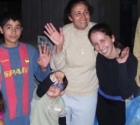 ESRA ASHKELON DONATED GOODS
ESRA ASHKELON DONATED GOODS  DEFIANCE TEL AVIV STYLE
DEFIANCE TEL AVIV STYLE 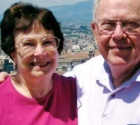 THE SPIRIT OF ESRA-JULES AND PERLA FOX- EXCEPTIONAL BENEFACTORS
THE SPIRIT OF ESRA-JULES AND PERLA FOX- EXCEPTIONAL BENEFACTORS A Matter of Perspective
A Matter of Perspective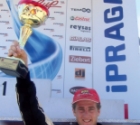 A fantastic motor sport adventure – a dream come true
A fantastic motor sport adventure – a dream come true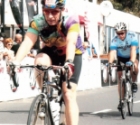 my sporting year 2007
my sporting year 2007 Pamela Peled
Pamela Peled